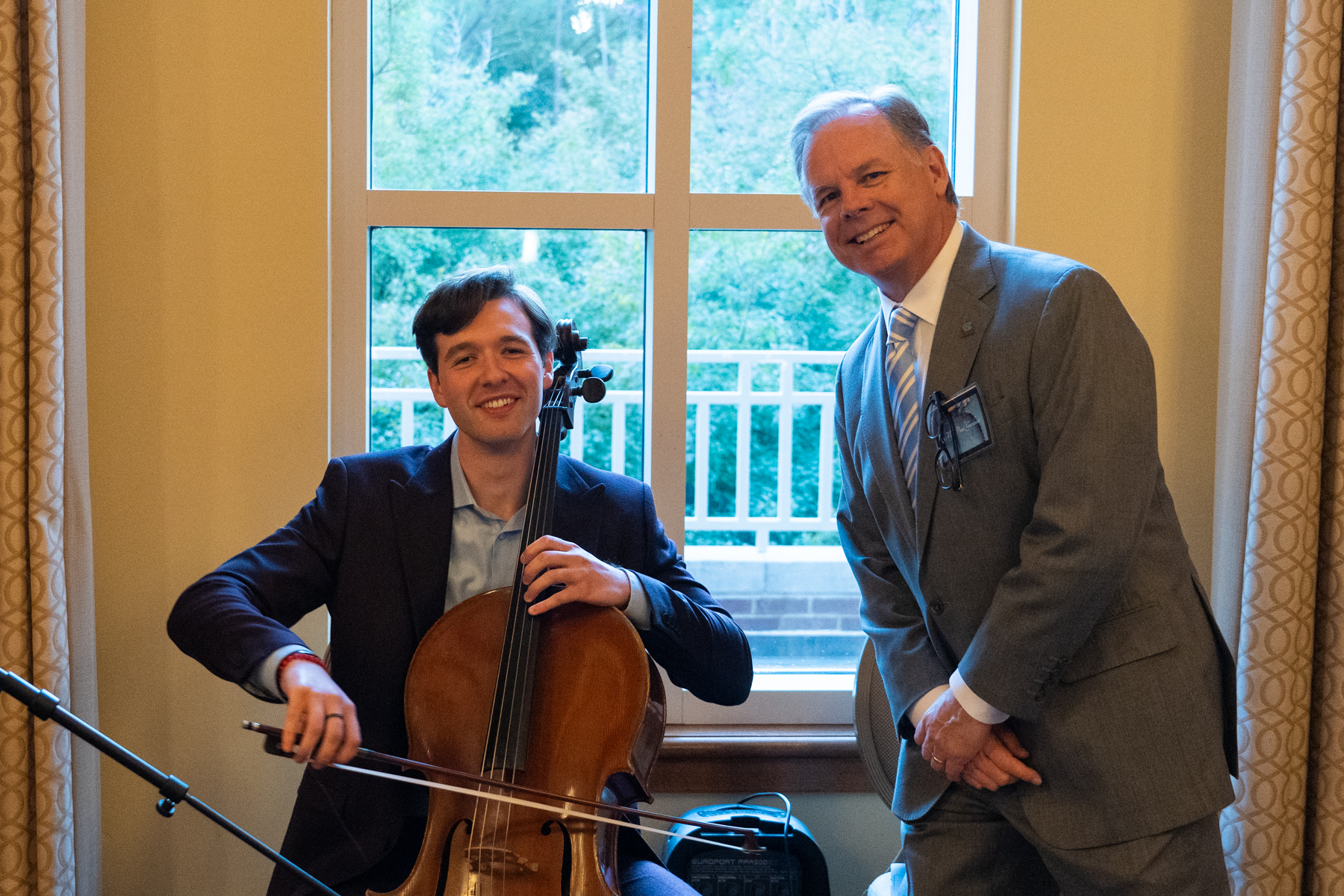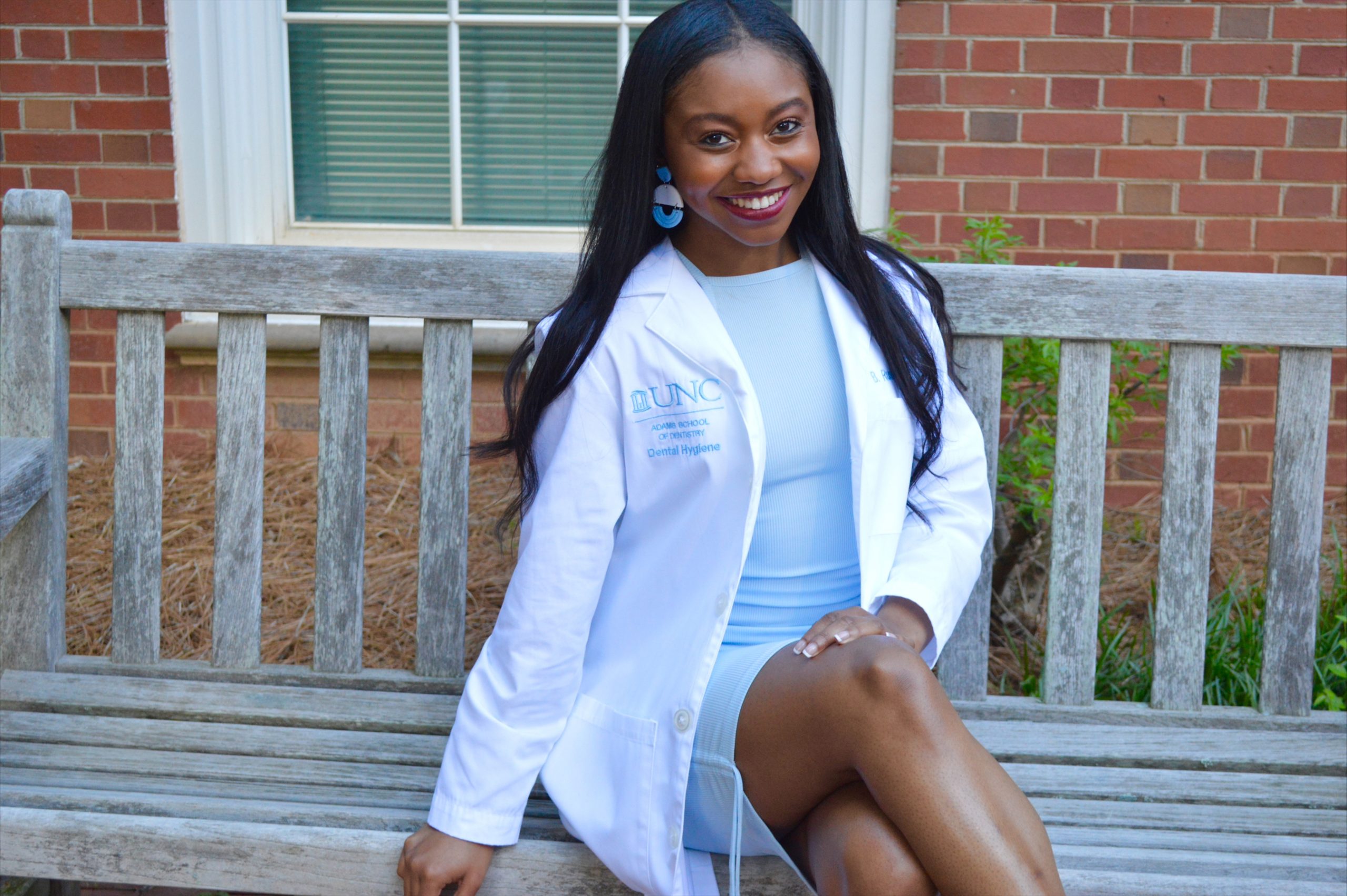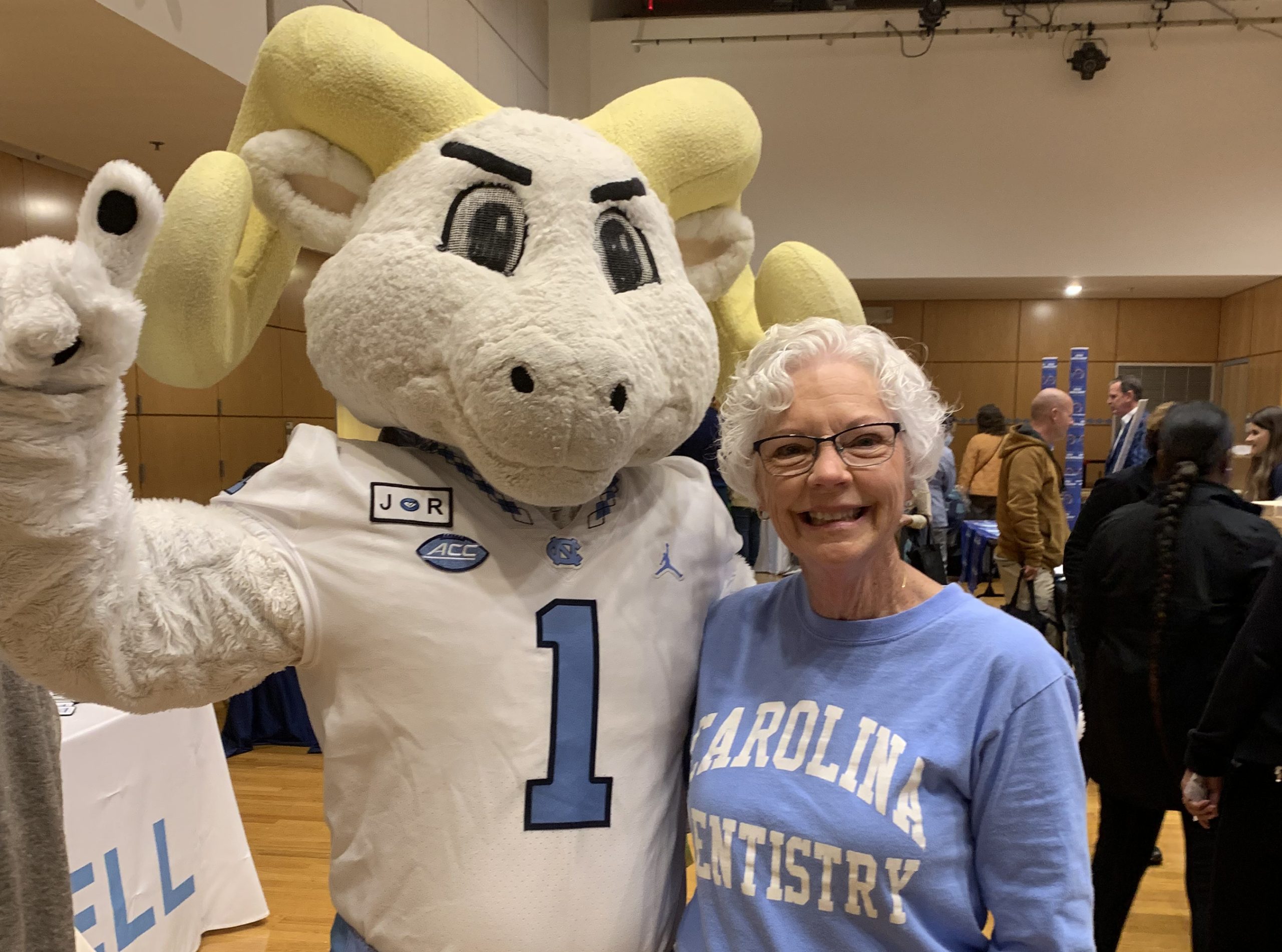Norman’s Commencement Address
Chuck Norman, D.D.S. ’77, is the current president of the American Dental Association. This appointment is the crowning achievement for Norman, whose leadership in organized dentistry is well documented during his professional career. As ADA president, Norman has focused his efforts on providing the ADA with a clear vision, inspired and motivated leadership and a dynamic strategic plan. His three-pronged plan has included keeping the organization on solid financial ground through growing membership; solidifying the ADA as the preeminent voice of dentistry; and advancing initiatives that help the profession and the public.
He is a past trustee of the ADA’s 16th district, where he represented North Carolina, South Carolina and Virginia. As a trustee, Norman chaired the Budget and Finance Committee, and served on other prestigious committees such as Administrative Review, Strategic Planning, and is a member of the Board of Directors of the ADA Foundation.
Norman also has held a number of appointments within the North Carolina Dental Society, the most notable being chairman of the Board of Trustees and president. He remains active in local dental groups, including the Third District Dental Society and the Guilford County Dental Society, as well as the UNC Dental Alumni Association from which he won the 2012 Distinguished Alumni Award. Additionally, Norman is a past president of the Dental Foundation of North Carolina.
After graduating from the UNC School of Dentistry, Norman opened a private dental practice in Greensboro. He and his son, Matt, practice there together currently. Matt Norman is a 2010 D.D.S. graduate of the UNC School of Dentistry.
What follows are Norman’s keynote remarks to the Class of 2014.
Good evening. I am honored to be here tonight to share this special occasion with you and your family and, more importantly, to congratulate you on this tremendous achievement.
You are joining a relatively small, collegial profession of just over 235,000 dentists nationwide.
I know firsthand what you are feeling tonight because in 1977, I was sitting where you are, listening to keynote, eager for him to finish, wanting to walk across this stage and receive your diploma for which you have worked so hard these last four years.
Then in 2010, I had the honor of sitting where your parents and families are tonight to celebrate my son, Matt’s, graduation from dental school.
These will be great memories that you will cherish forever, particularly since it is occurring in Carmichael-Michael Jordan.
As an alumnus, colleague, and president of the American Dental Association, I wish to share a few of my thoughts about our profession and the role that each one of you will play in shaping our future.
As you transition from student to practitioner, you will face an environment very different from the one that I faced in 1977:
- Decay trends have decreased in 80 percent of population
- Decreasing covered lives by dental insurance
- Decreasing utilization
- Increasing numbers eligible for public assistance
- Increase in student debt as a percent of net income
Endless opportunities for career choices:
-
- Private practice partnerships and associateships
- Group practice
- Academics
- Research
- Public health
- Military
- Specialty training
- Administration and sales with industry
Whichever route you choose, it is up to you to determine your success.
I chose private practice and for the last 37 years, I have enjoyed every minute.
While your career may be very different than mine, I have several pieces of advice that will serve you well regardless of your career choice or the state of the dental environment.
- Dream big and surround yourself with advocates and mentorsLet me tell you a story about a 2002 movie, “The Rookie,” starring Dennis Quaid. He moved around as a military child. He started playing baseball at three and dreamed of playing in the majors. He moved to Texas after freshman year in high school, graduated in 1982, went 466th in draft, 1983 drafted fourth, played six seasons in minors. During his career, he suffered with injuries and surgeries, so he went back to school, earned his teaching certificate and began coaching baseball in Texas. In 1999 he made bet with his team. He was signed by Tampa Bay, played triple A for Durham Bulls, was called up and pitched one season with majors. He achieved his dream of pitching in major leagues. His career was not a Cinderella story; he only played one year. That was not the point of his message. The take away was to always surround yourself with mentors and people who empower you to reach for your dreams and give you positive support.
- Commit to lifelong learning. You have received a world class education at UNC second to none and you are well prepared to start your career, but what you learn from here forward is what makes you an exceptional dentist.When I began practice there were no implants, or posterior composites, or CAD/CAM. Who then would have envisioned that I would be able to take digital impressions for C&B, mouth guards, surgical guides, or that we would have the ability to see teeth and supporting structures in 3D for better diagnosis? All of those things are common place in my practice today.
In 35 years, you will look back at the advancements made from now until then and be astonished how much change will occur in our profession. Don’t get left behind.
- Take responsibility for your profession. Be a leader in your professional organizations and community.Just as there has been tremendous change in the science of dentistry, there has been significant change in the dental environment and marketplace in the last 37 years. You can rest assured that those changes will continue. If you want to shape those changes and define the role of dentistry in the delivery of health care, you need to be engaged as members of your professional organizations.
Some of you will be leaders at the local, state, or national level of the ADA, however most of you will not, but all of you should be members and voice your opinion.
Opportunities do not happen by chance. Be assertive and offer your time and skills at your local society. You can work on some project in an area of interest to you, go through the officer core, or volunteer your time with community outreach like GKAS and MOM
Whether or not you are interested in leadership with organized dentistry, you all should accept the responsibility of being leaders in your communities. You become the voice of dentistry with the lay public and an advocate for the patients we serve. Collectively, we can influence policy, but individually you can change lives.
Ethics, excellence, leadership and advocacy should be as much a part of your career as placing an occlusal restoration.
Having spent the last two years traveling the country, I am excited about the future of dentistry. Looking out at this graduating class, I know our profession is in good hands. I envision dentistry playing a much larger role with our medical colleagues in the early diagnosis and control of chronic diseases such as diabetes and cardio-vascular disease, as well as the prevention of other diseases by providing vaccinations. Your responsibilities within the health care community will certainly expand and you must advocate for the full use of your knowledge and skill.
Before I close, I want to leave you with a final thought. When I gave my presidential address last year, I referenced the career of Dean Smith, an icon and much revered coach here at Chapel Hill. His leadership and uncanny ability to mold impressionable young men into a team and an extended family was at the heart of his success. Similarly, as an organization, the ADA operates like a team servicing our members and patients as though we all belong to an extended family. But Coach Smith’s most important trait is one that most people are unaware. In the late sixties, Coach Smith quietly did his part to forward civil rights for all people regardless of race. Years later when his efforts were made public, he responded somewhat embarrassingly, “You should never be proud of doing what’s right. You should just do what’s right.” Remember, when you embark on your careers and you have been entrusted with the responsibility of your patient’s health, remember those wise words from Dean Smith: “Just do what’s right.”
It has been my privilege to be here tonight and giving the commencement address at my alma mater and it will always be one of the highlights of professional career.
Best wishes on a successful future in dentistry and I honored to call all of you, colleagues.


